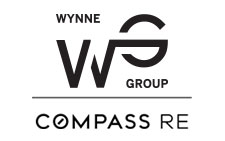Buying a home is a financial investment. It comes with not only a monthly payment, much like what you’re probably used to paying in rent, but additional upfront costs, one-time fees, and even monthly escrow can really increase the amount you will spend. Here’s how to determine how much you might expect to pay for your new home.
Use a mortgage calculator to determine what you can afford.
Mortgage rates can greatly affect the amount of your monthly mortgage payment. Historically, interest rates are very low at the moment. Thirty years ago, your rate might have been similar to what you might be paying in credit card interest right now! Obviously, a low rate makes it an ideal time to buy. However, several things affect whether or not you get the lowest rate being offered by a particular mortgage lender.
Click to get pre-approved for a home mortgage!
The higher your credit score, the more enticing you are as a borrower, since the lender will see you as reliable, and very likely to make your payment on time. At least six months before purchasing a home you should evaluate your credit score and improve it if needed by making payments on time, clearing any collections or defaults, appealing any mistakes on your credit report, and not opening any new lines of credit.
If you are borrowing more than 80% of the value of your home, your rate might also take a hit. You should try to put down at least 20%, which will also allow you to avoid private mortgage insurance, an additional fee that most lenders tack onto loans of more than 80% to further cover their loan if you default.
Finally, the size and term of your loan can affect your rate. Shorter mortgages offer lower rates than longer ones, so a 15 year mortgage will almost always cost less in interest than a 30 year mortgage. If you are borrowing a jumbo loan (currently a loan of more than $417,000), your rate will also be higher.
Get pre-qualified for a mortgage.
Talk to a mortgage lender about how much you may qualify to borrow. They will review your financial picture and determine, mostly based on your income and current debts, how big a loan they are comfortable giving you. This will allow you to search for homes within your price range, and when you make an offer, the seller will be assured that you will likely be able to obtain financing.
Some situations might mean that you should not borrow the entire amount you qualify for, however. Most lenders and federal regulations only allow you to spend 40% of your monthly income on debt, so if you have expensive car loans, student loans, or other kinds of payments, you may not be able to borrow as much as you think. If you have expensive hobbies, are paying for your children to go to expensive schools, or enjoy a lot of pricey travel, you might also choose to spend less on your mortgage. Being self-employed or having flexible income, like working on commission, will also likely affect what you feel comfortable spending.
Research taxes and insurance to determine your total monthly payment.
Taxes and insurance can, in some cases, nearly double your monthly mortgage payment. Many people choose to escrow these items, which means they are rolled into your mortgage payment (which will also include principle and interest) and held in an escrow account. Once or twice a year, when your tax and insurance bills are due, the mortgage company will use this account to pay those bills. Another option is to pay the bills on your own, which will require saving throughout the year.
Some neighborhoods in Philadelphia offer tax abatements for economic investment, usually lasting ten years. Your realtor will be able to tell you if a property you are interested in qualifies for tax abatement. You can contact your current insurance agent who deals with your renters or auto insurance to run an insurance quote on a home you may be interested in to see what your monthly insurance obligations might be, as well.
Look into closing costs.
Closing costs may, in some cases, represent 5% to 10% of the total cost of the home. Some closing costs include mortgage origination fees, a home inspection fee, and pre-payment of taxes. Thankfully, home buyers are not normally responsible for real estate agent fees, but if you are buying a home that is for sale by owner, the seller may require you to pay for your own agent as well.
In some situations, it may be worth asking for a certain amount towards closing costs from the seller when you make an offer on a home. Your agent will be able to tell you if that is a common approach in your market or neighborhood.
If you have questions about the first time home buying process please don’t hesitate to contact me. And remember: friends don’t let friends buy homes without Agent Lady!
About Agent Lady: Cherise Wynne is a leading real estate agent in Philadelphia, helping home buyers and sellers navigate the City of Brotherly Love, with a special focus on first time home buyers. To chat about getting started with your first time home buying experience, click here.


